Pope Francis Angelus – St. Peter’s Square – Vatican City, March 30, 2014
Dear brothers and sisters, hello!
Today’s Gospel presents us with the episode of the man born blind to whom Jesus gives sight. The long narrative opens with a blind man who begins to see and closes – this is curious – with those who presumably see and who continue to be blind in their soul. John tells of the miracle in just 6 verses because he wants to draw attention not to the miracle but to what happens afterward, that is, to the discussions that the miracle causes. He also wants to draw attention to the gossip. Often a good work, a charitable work causes gossip and discussion, because there are some who do not wish to see the truth. The evangelist John wants to draw attention to this, which also happens today when a good work is done. The blind man who is healed is first interrogated by the astonished crowd – they saw the miracle and they interrogate him. Then he is interrogated by the doctors of the law; and they also interrogate his parents. In the end, the blind man who is healed arrives at faith, and this is greatest grace that Jesus bestows upon him: not only to see him but to know him, to see him as “the light of the world” (John 9:5).
While the blind man comes gradually closer to the light, the doctors of the law on the contrary sink ever further into their interior blindness. Shut up in their presumptions, they think they have the light; because of this they do not open to Jesus’ truth. They do everything they can to deny the evidence. They question the reliability of the man who is healed; then they deny the action of God in the healing, saying that God does not heal on the Sabbath; then, finally, they doubt that the man was even born blind. Their closure to the light becomes aggressive and leads to the expulsion of the man who is healed from the Temple.
The path of the blind man instead is a gradual process that begins with knowing Jesus’ name. He does not know anything else about him. In fact, he says: “The man called Jesus made clay and anointed my eyes” (9:11). In response to the pressing questions of the doctors of the law he first says that Jesus is a prophet (9:17) and then a man close to God (9:31). After he is thrown out of the Temple, excluded from society, Jesus finds him again and “opens his eyes” a second time, revealing to him is true identity: “I am the Messiah,” he tells him. At this point, the man who was blind exclaims: “I believe, Lord!” (9:38), and prostrates himself before Jesus. This is a passage of the Gospel that gives us a glimpse of the drama of the interior blindness of many people. And we glimpse our own interior blindness too because we sometimes have moments of such blindness.
Our life is sometimes similar to that of the blind man who is open to the light, who is open to God, who is open to his grace. Sometimes, unfortunately, our life is a little like that of the doctors of the law: from the height of our pride we judge others, and, in the end, the Lord! Today we are invited to open ourselves up to the light of Christ to bear fruit in our life, to eliminate non-Christian ways of acting; we are all Christians, but all of us, all of us, at times act in ways that are not Christian, we act in ways that are sinful. We must repent, we must stop acting in these ways so we can set out decisively on the road of sanctity. This road has its beginning in Baptism. We too are “enlightened” by Christ in Baptism, so that, as St. Paul notes, we can walk as “children of light” (Ephesians 5:8), with humility, patience, mercy. These doctors of the law did not have humility, patience or mercy!
I would like to suggest to you today, when you return home, to open the Gospel of John and read this passage of chapter 9. It will do you well, because in this way you will see this road from blindness to light and the other, wicked road toward deeper blindness. Let us ask ourselves about the state of our heart. Do I have an open heart or a closed one? Open or closed to God? Open or closed to my neighbor? We always have some closure in us born of sin, of mistakes, of errors. We must not be afraid! Let us open ourselves up to the Lord. He awaits us always to help us see better, to give us light, to forgive us. Let us not forget this! To the Virgin Mary we entrust the Lenten journey, so that we too, like the blind man who was healed, can with the grace of Christ “come to the light,” make progress toward the light and be reborn to a new life.
[Following the recitation of the Angelus]
[…] I offer a special greeting to the members of the Italian military who have made a pilgrimage on foot from Loreto to Rome, praying for the peaceful and just resolution of conflicts. And this is very beautiful: in the Beatitudes Jesus says blessed are they who work for peace.
[…] Don’t forget today – when you get home, open the Gospel of John, chapter 9, and read this story of the blind man who was given sight and of the people who were thought to have sight who sank deeper into their blindness.
I wish everyone a good Sunday and a good lunch. Goodbye!

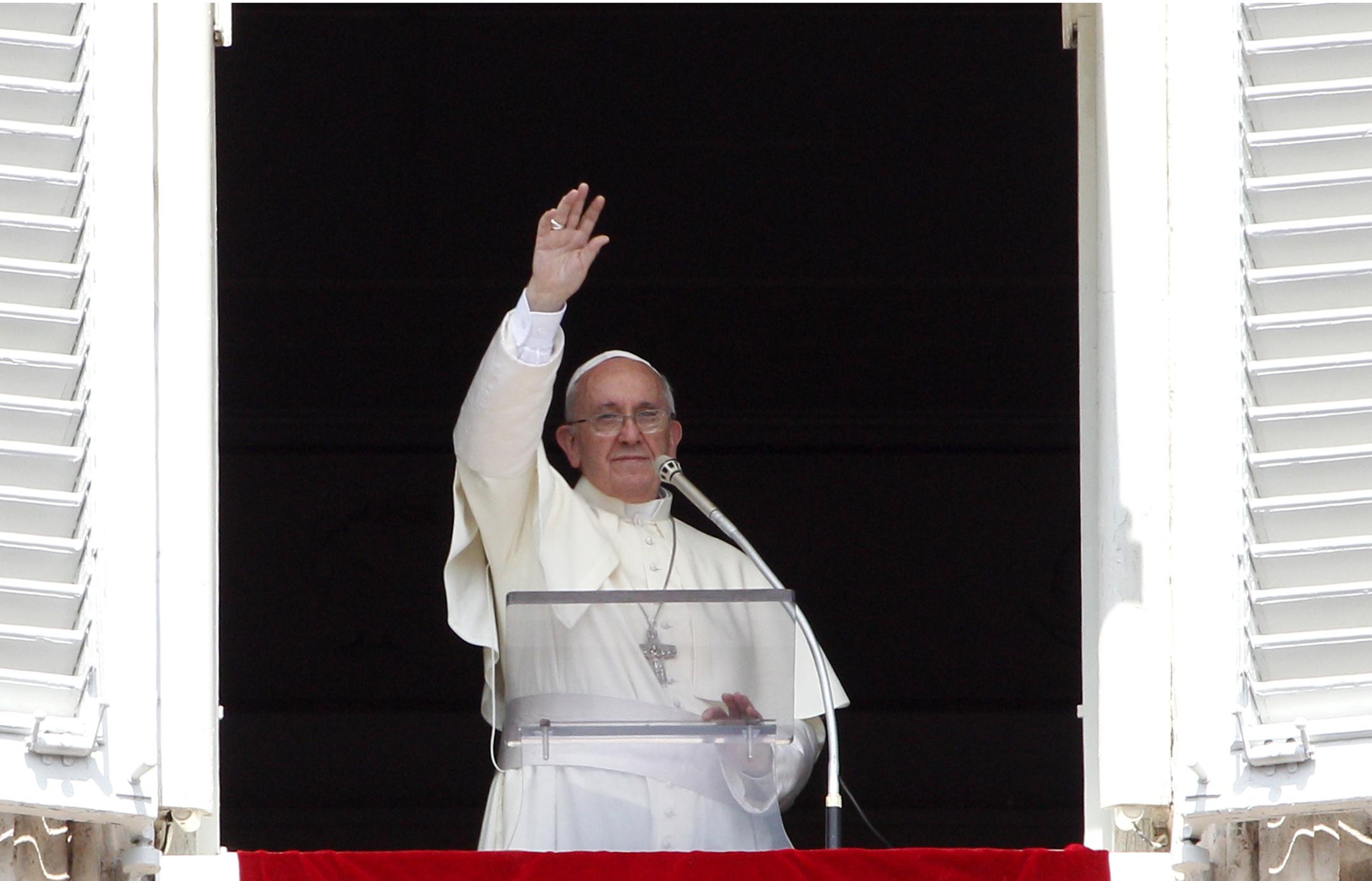
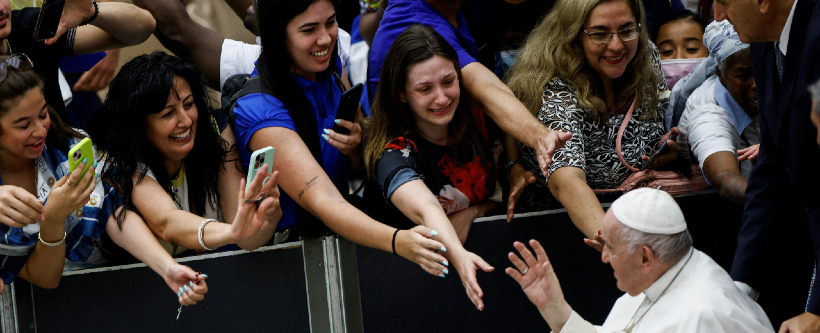
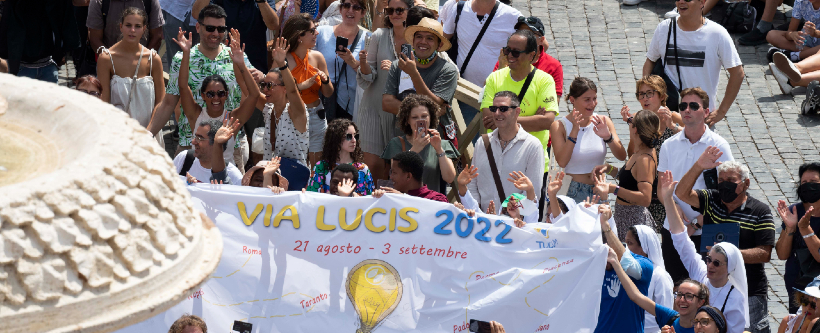
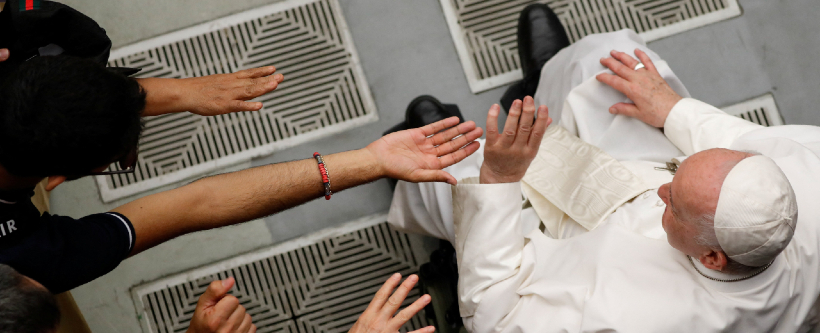
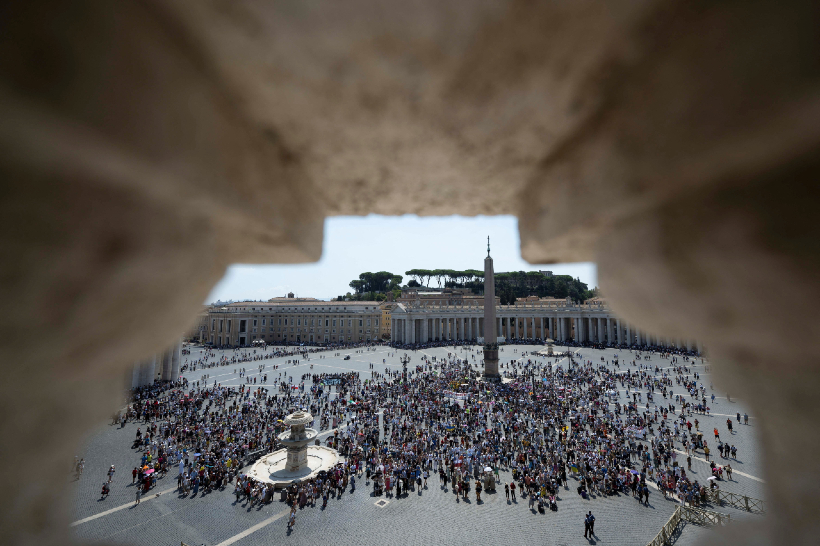
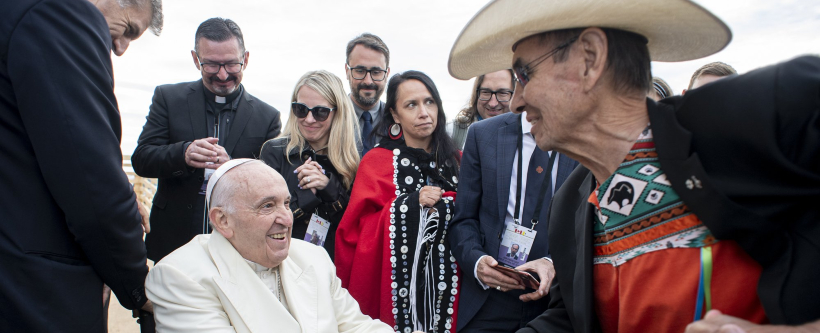
Facebook Comments